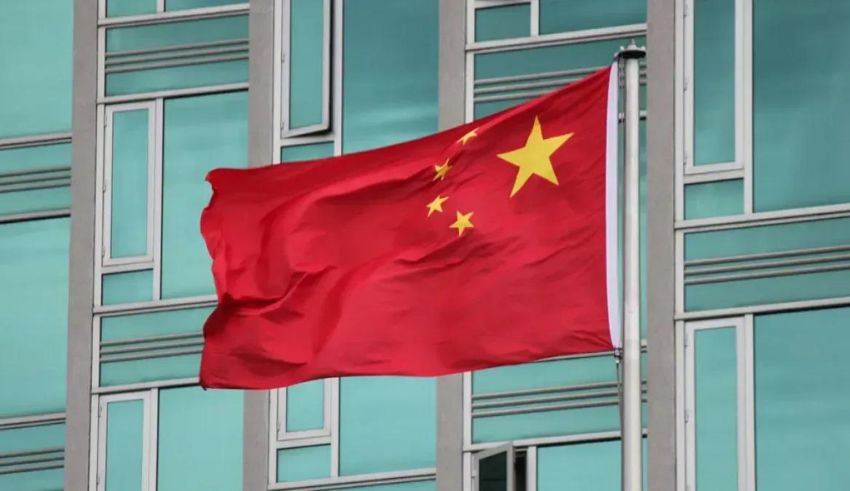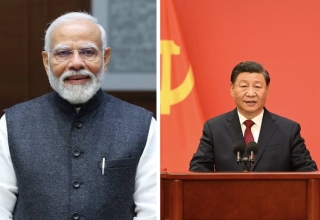
The public has been seriously warned by China’s Ministry of State Security (MSS), which raises questions over foreign spies using ever more advanced and covert means of entrance into the nation. The MSS claims that foreign intelligence agents “have countless disguises” and may even switch their gender in line with their missions of espionage. Emphasizing the need of the whole population to “build 1.4 billion lines of defense” against outside dangers, the ministry urged Chinese people to be watchful.
With the government pushing its citizens to be always vigilant about the risk of foreign espionage, this warning signals a sharp escalation of China’s national security rhetoric. The MSS is also focusing on the threat presented by foreign spies who are targeting China’s younger population, particularly those with access to important scientific research and government data, as part of this increased alertness.
Foreign Spies Aiming at “Romance Traps” Chinese Students
The MSS’s most concerning disclosures center on what it refers it as “romance traps”—that which foreign agents employ to entice and control Chinese students. These students—many of whom participate in scientific research or have access to private information—are especially targeted with false job offers and internet dating sites. Once these foreign operatives, posing as possible love partners, get to know the students, they employ aggressive techniques to get important information.
According to an official statement, the MSS cautioned that foreign agents might pass for “handsome men” or “Beautiful women,” therefore entrapping students into false relationships. To enter academic circles where sensitive information is shared, these foreign spies might also pass for consultants, scientific researchers, or university experts. They take advantage of weaknesses including financial need and provide cash-strapped students with generous employment offers or grants in return for classified material.
Although the MSS has not revealed which particular nations are purportedly behind these espionage activities, the agency’s warning underscores growing worries about foreign powers utilizing progressively personal and manipulative strategies to target China’s future intellectuals and academics. Establishing a personal connection helps these foreign spies more effectively compel young students into supplying specifics on current government-related research or scientific projects.
More General Notes Regarding Foreign Espionage and Infiltration
The most recent warning is a component of a larger MSS campaign to increase consciousness of foreign intrusion and espionage inside China. The CIA has released multiple public advisories over the past few months on the several ways foreign operatives could try to fool or control Chinese people. Earlier this month, for instance, the MSS cautioned the people to be wary of “wolves in sheep’s clothing,” foreign agents posing as “good Samaritan” agents covertly seeking to compromise China’s sovereignty.
The MSS issued another well-publicized warning in June accusing Britain’s MI6 spy service of hiring a Chinese couple employed by the central government. The MSS claims that the pair had been gathering sensitive government data on behalf of the United Kingdom in return for money and other incentives, therefore acting as spies. These cautions mirror the continuous rise in worries about foreign espionage, which under President Xi Jinping’s direction now forms the main focus of China’s national security initiatives.
Emphasizing the need of protecting China from outside meddling, President Xi Jinping has made national security one of his main concerns since into office. Xi has positioned himself as a leader fervent in safeguarding China’s sovereignty, and his government has often cautioned of the dangers foreign powers trying to undermine the nation bring about. Beijing has stepped up its attempts to identify and stop espionage under his direction; the MSS is playing a progressively active part in these initiatives.
With China’s continuous inventions and research advances making it a prime target for espionage, Xi Jinping’s government has concentrated especially on the risk of foreign intrusion in academic and technical sectors. China is very committed in keeping its competitive edge in these fields, hence the MSS’s cautions on spies targeting researchers and students fit within a bigger plan to safeguard intellectual property and scientific achievements of the nation.
Recent Charges of Espionage
Apart from sending broad alerts, the MSS has also started to reveal particular instances of claimed espionage both inside China and beyond. For instance, European investigators looked at the Brussels office of a German member of the European Parliament (MEP) accused of espionage for China in May. With claims that Chinese agents were aggressively recruiting people within European political institutions, the study sparked questions on the degree of China’s intelligence-gathering activities in Europe.
Tuesday brought news of a fresh claimed espionage case involving United States. Arrested and accused of serving as an agent for China, a former official who had assisted New York state Governor was U.S. officials claim that the former assistant paid millions of dollars in exchange for giving Chinese agents private information. This case is only one illustration of the larger espionage conflict China and Western countries engage in, which has grown ever more public in recent years.
High Stakes Espionage Tensions Among Western Powers and China
One of the main flashpoints in international relations is the continuous fight China and Western countries have over charges of spying. Although espionage has traditionally been a technique employed by world powers to obtain strategic benefits, the tensions between China and nations such the United States, the United Kingdom, and numerous European states have surged recently. With each nation accusing the other of trying to compromise its political, military, and technological systems, both sides have traded allegations of spying.
China’s latest warnings about foreign espionage capture the high stakes of this struggle as Beijing tries to defend its own interests while simultaneously refuting charges of eavesdropping directed against it by Western countries. The stakes for safeguarding private information—in the domains of science, technology, or government—are more than ever as China keeps ascending as a worldwide force.
Final Thought
The warnings of the Ministry of State Security to the Chinese people highlight the growing complexity of the scene of global espionage. Beijing is exhorting its people to be always alert as foreign spies supposedly use personal, intimate strategies like “romance traps” to enter China’s scientific and intellectual circles. Simultaneously, the larger geopolitical conflicts between China and Western nations over claims of espionage are probably going to get more intense as both sides try to advance their own agendas on the world scene.























